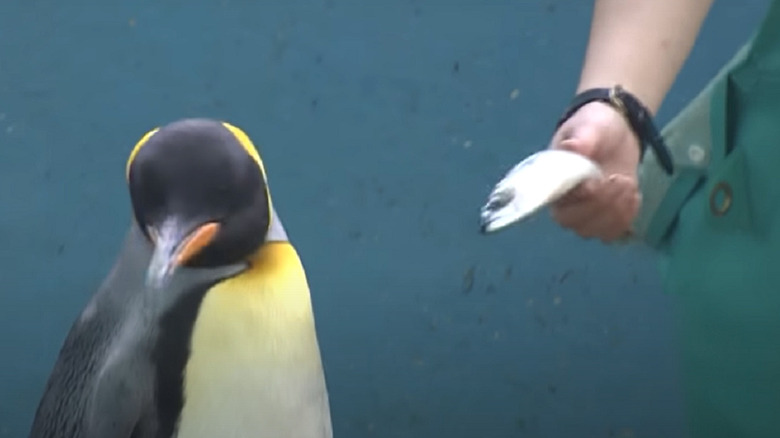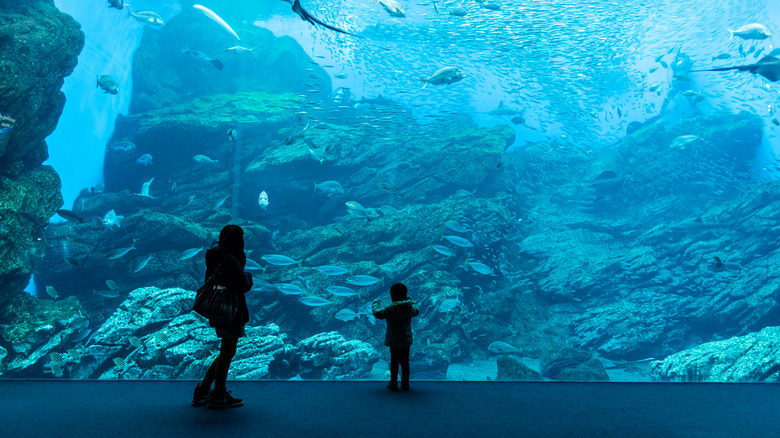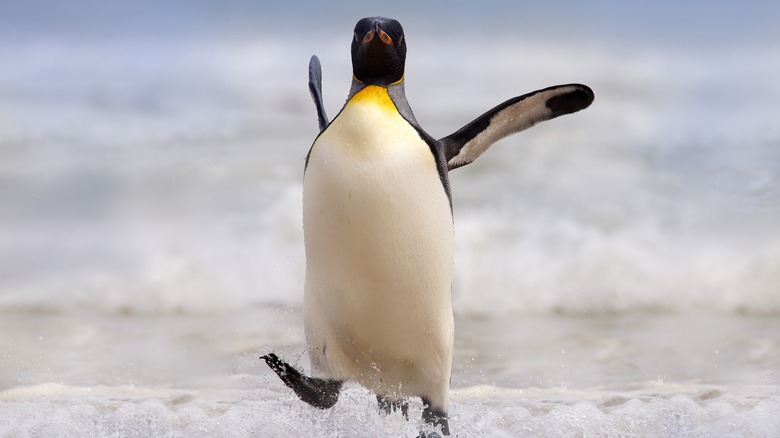The Relatable Reason Penguins In A Japanese Zoo Are Refusing To Eat Cheap Fish
When the Covid-19 pandemic exploded across the world in the first few months of 2020, it set into motion a series of events that would devastate world economies. At first, the pandemic shuttered all but "essential" businesses the world over and, in America at least, put tens of millions of people out of work, according to AJMC. After economies came crawling back to life, multiple employers found that the Great Resignation, as it came to be called, meant that millions of people re-evaluated how much going back to work meant to them, leading to labor shortages. That, in turn, combined with supply-chain issues that may or may not be related to the pandemic, a war in Eastern Europe, and other issues have resulted in shortages, businesses being unable to fully reopen, and of course, higher prices.
The effects of this worldwide economic instability, and inflation in particular, aren't just being felt by us humans. As Vice reports, penguins in a Japanese aquarium have found, to their great disappointment, that higher prices have resulted in them having to eat cheaper fish. And, the birds aren't feeling it.
The Hakone-En Aquarium
Visitors to Japan may not be making the journey solely to visit aquariums and zoos, but regardless, the Hakone-en Aquarium, in Kanagawa Prefecture, about 120 miles southwest of Tokyo, is a great place for a day visit, according to Kanagawa Travel Info. "You can't underestimate an aquarium on a mountain-top, as it features a sunken vessel in the massive 7 meter-deep tank with 1,255 tons of water, large sharks and penguins among other creatures," notes the travel site, adding that the aquarium takes advantage of its high elevation to provide a comfortable environment for Baikal seals.
Of course, running an aquarium takes money, and there's not as much of it flowing through this particular corner of Japan as there once was. That's led to some belt-tightening, according to Vice, which includes cutting back on energy costs, such as by reducing light use and limiting the amount of filtration in the tanks (although not to the point that it endangers the animals). The facility has also tried to cut back on food costs. However, the penguins, used to a more upscale diet, are not interested in their cheaper diets and are refusing to eat.
'They'll Just Spit It Out.'
Prior to May 2022, the penguins at the Hakone-en Aquarium ate fatty aji (Japanese horse mackerel), according to Vice. However, the facility has been transitioning to feeding the birds a fish called saba, a fattier and cheaper version of mackerel. Initially, only 10% of their daily allowance was the cheaper fish, but beginning in July, that portion was to move up to 30 to 40%.
Head zookeeper Hiroki Shimamoto said that the penguins aren't feeling the lower quality food. Some won't go near it, some will peck at it gingerly, some will take it into their beaks and then lose interest. "Even if they'll take it in their beaks, they'll just spit it out," he said. Indeed, this adorable video shows the birds turning their heads in disgust at their cheaper alternative. "I'm not sure if the animals can taste a significant difference, but you can tell they're not used to it," said Shimamoto.
Though the penguins may have bird brains in the most literal possible sense, they're not going to starve themselves to death. Shimamoto promises that any bird who refuses to eat the new food will get their previous rations.


